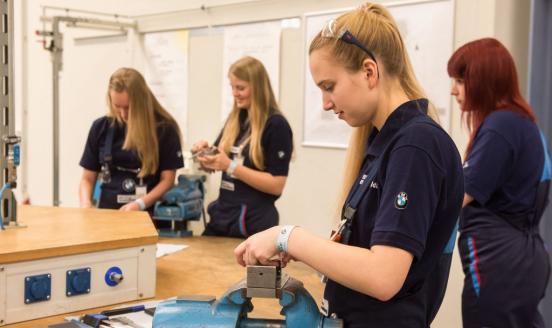The global race for innovation
Commissioner Moedas' speech at the Bruegel event "The new European research agenda".
Ladies and gentlemen, esteemed guests,
First of all, it is a real pleasure to be here. Today's discussion is one I've been looking forward to a great deal. I want to take this opportunity to tell you why I think Europe is well positioned in the global race for innovation and knowledge creation.
If there is one thing Europe does well it's "pessimism". Pessimism always sells, even in politics. So let me instead focus on the strengths we have, not forgetting, of course, the many things we need to improve.
Innovation is much more than a technical process.
The first thing I want to tell you is, I am happy that now it is almost a truism, to state that innovation is much more than a technical process. Innovation reaches from fundamental research to business process and plans, to marketing and to design. The second thing I want to say, is that I believe in a more democratic paradigm of innovation.
We have moved from a world in which Schumpeter would say, and I quote, "The producer initiates the change and educates the user", to a world in which innovation is, in many cases, created by the user. Von Hippe, from MIT gives several examples:
- Irrigation machines
- The Heart lung machine
Harry Chesbourough has a good image for this: that the funnel between producer and users now has many holes.
Third, I believe that this evolution can open more opportunities for disruptive innovation. Disruptive innovation is and often quoted term, but sometimes, it is not used in its precise form. Disruptive innovation creates new markets by making something – a product or service – simpler, more affordable, and more accessible. This is the kind of innovation that creates solid growth, jobs and a sustainable future.
In Europe, we are better positioned than most people assume.
So, considering this more precise view on innovation, where does Europe stand? I will argue that we are better positioned than most people assume. Saying that we are well positioned is not saying that everything is great. On the contrary. What I am saying, is that we have tremendous untapped potential. In Europe, many things are working. If we build on our strengths, on the things that make us who we are, our solutions will be legitimate, effective and sustainable.
And here I must thank Professor Reinhilde Veugelers for her thoughtful and insightful memo "To the Commissioner for Research". It makes many astute observations of our current situation, and is refreshingly frank in its recommendations.
It is true that some areas of the world are moving faster than Europe. Economic and political circumstances are rarely perfect. We overcome one challenge to face another. But there are ways to make our economies more resilient: our breakthroughs more socially and commercially valuable. Ways to lead global markets with European innovation.
We have almost limitless potential. The EU is the world's largest trading block, with 500 million consumers looking for goods and services. The EU benefits from being one of the most open economies in the world. The kind of openness I want to see benefitting research, science and innovation.
Our global standing in these three arenas rests on the creative freedom of our scientists and researchers. On the people engaged in fundamental, curiosity-driven research. Research that will pay for itself in the long run.
There is one thing we certainly don't have and that is a fully integrated market across the EU. We came a long way in our internal market and we can still achieve much more in several areas, including the European Research Area. But gaining from a more integrated European market.
Still, we have to accept that we will always be different from, say, the United States. Despite all our efforts, we will always have a more fragmented market. We have 28 governments, 28 science and innovation policies, 23 languages, and diverse cultural and historical experiences.
That fragmentation is an enemy of efficiency, it prevents some gains from scale - no doubt about it. But we should also embrace its benefits. The main one is "diversity". Diversity is a source of creativity and innovation. Linda Hill, at Harvard University, studies creativity in groups and she highlights the fact that diversity may slow thing does, but leads to more innovation and creativity. The thing is, that in Europe, we tend to focus on the negatives, on the fragmentation of our markets. In the EU we have the great advantage, and privilege, of a pool of talent from 28 member states, not to mention those who come from outside to work and study in our centres of excellence.
Each scientist brings their own outlook and expertise. Each researcher brings a different perspective to the table. Europe is an ideas factory for everyone within our shores.
The diversity of Europe creates challenges, but also a lot of potential.
So, for me the diversity of Europe creates challenges that we have to address – with policy responses, like ERA and other measures, to better coordinate science policies across Member States. But this diversity also creates a lot of potential. We need this fragmentation for healthy competition. And for that we need a rising tide of all Member States improving their incentives for research and innovation.
This is why addressing the knowledge divide is crucial! All European countries, even the most advanced, have to have an enlightened, self-interest approach in this: they will all benefit from a rising tide!
A second, often heard criticism of Europe in this area lies in cultural explanations. I really don't agree with these kind of explanations, that statement that we are more risk averse, or more conformist. The great Venture Capitalist Marc Andresseen once said that his experience is that on average, European Entrepreneurs are better than Americans…adding "they have to be".
That is the crucial thing!
The problem is not our culture, it is the incentives we have. And it is true that we need a lot of work to improve the framework conditions for innovation and research. We have far too many barriers in our markets. This is why my first priority is precisely the reforms to lower these barriers.
So, what are we to do in the next 5 years?
In my hearing, I stated my three main priorities. In my view, these are the ones that will help tap into the huge potential I see in Europe.
First, create the framework conditions for a more productive exchange of research results, fundamental science and innovation. Things like:
- Screen the regulatory framework in key sectors in order to remove bottlenecks
- Accelerate the implementation of standardisation
- Promote the public procurement of innovation and innovation in the public sector
- Promote a venture capital culture
- Reduce bureaucracy in science and innovation systems
Second, is to consolidate fundamental research as the flagship for Europe. As the essential foundation for a knowledge-based society. Working towards a single, open market for knowledge though open science. Third: implement Horizon 2020 and the new Investment Plan to leverage the Europe economy towards a higher plane as a research and innovation-based area. Working towards a single, open market for knowledge though open science. It is better to focus on our potential than to dwell on illusions. We will always be different from other parts of the world. But that difference has many benefits!
We need to focus on these benefits; we need to have a rising tide, in which the full diversity of Europe works for us, not against us. We need to focus on incentives, not on convenient cultural explanations. Our scientists and entrepreneurs are world class. But they still face far too many barriers. Let's focus on those. Let's focus on reforms.
I look forward to debating this with you! And not just today!
Check Against Delivery.
Read more:
Undercutting the future? European research spending in times of fiscal consolidation


